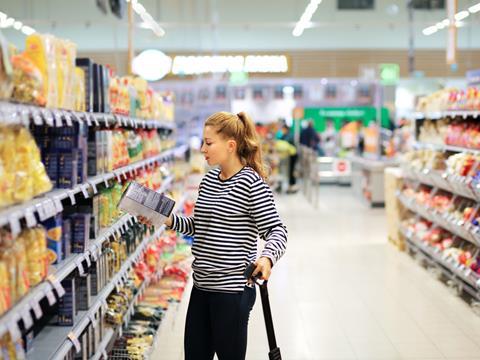
As more and more brands and retailers opt to not include ‘use by’ dates on their packaging, the packaging industry is being presented with an exciting opportunity. Andrew Manly, AIPIA’s communications director, tells us more.
The announcement last month that the UK’s Co-op retail chain is to drop the use of ‘use by’ date guidance on its own-brand yogurts came as most welcome news in many quarters. For Smart Packaging providers it could be turned into an opportunity. But these moments must be seized on properly, and there need to be some mechanisms to achieve that. After all, even the packaging averse WRAP UK organization admits that 70% of food waste occurs in the home. So, any on-pack mechanisms which reduce that must be worthy of consideration.
Indeed, in 2021, the Co-op already removed date labels on several fresh produce lines as part of an ongoing trial, as well as offering on-pack storage advice on a number of its ranges to help cut waste. While earlier this year, Morrisons made the same change to its milk, replacing expiry dates with best-before dates, having already scrapped use-by dates across some of its other own-brand items.
Is this a trend that can build momentum? Or is it still fiddling around the edges of a much more fundamental issue? Let’s take a look at the situation. Use by, sell by and best before dates have been around forever. They are easy to apply and generally understood by consumers.
The fact that they are widely misapplied to some products is generally recognized industry-wide. Even a European Commission study (2018) estimated that up to 10% of the 88 million tonnes of food waste generated annually in the EU is linked to date marking.
So, these rather arbitrary date marks, which have by any admission served us well, are now part of the problem and actually increase food waste, rather than reducing it. This brings us to the question of why the food producers and retailers (and even logistics companies for that matter) are not making more use of existing, tried and tested Smart Packaging solutions such as condition monitoring and freshness indicators, which can be used both along the supply chain and on-pack/in-store?
Not only does it make environmental sense to reduce the food waste pile – producing the food generally has far more environmental impact than the packaging – but it also makes economic sense too, particularly at this moment in time, when food shortages abound and food inflation is rife.
Both from a sustainable perspective and from an ROI the condition monitors, smart freshness labels and time/temperature indicators now make perfect sense and are available, affordable, and scalable for a myriad of applications.
Of course, it will mean adjustments to some areas of the supply chain, particularly stocking and timely distribution; and in particular how the food retailers deal with shelf management for perishable goods. But that is about training and work practices. If you are saving money and offering an environmentally responsible solution, why would you not do it? Production methods are hardly affected (you are simply replacing a label mostly on SKUs or even batches and/or pallets).
And make no mistake, governments and organisations like FSA know that misinterpretation by consumers of the meaning of the ‘use by’ and ‘best before’ dates contribute to food waste. The EC’s new Farm to Fork Strategy Search will propose, by the end of 2022, the revision of EU rules on date marking. In doing so, the Commission aims to prevent food waste linked to misunderstanding and/or misuse of these dates, whilst ensuring that any proposed change meets consumers’ information needs and does not jeopardize food safety. This is a direct quote from the official website.
The clock is ticking…
This article was created in collaboration with AIPIA (the Active and Intelligent Packaging Industry Association). Packaging Europe and AIPIA are joining forces to bring news and commentary about the active and intelligent packaging landscape to a larger audience. To learn more about this partnership, click here.














No comments yet